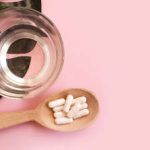1. Introduction: The Role of Nutrition in Skin Aging
When it comes to maintaining youthful, glowing skin, what you eat matters just as much as the skincare products you use. In fact, your diet plays a major role in how your skin ages over time. While aging is a natural part of life, certain foods can help slow down the visible signs of aging and keep your skin looking fresh and vibrant.
As we age, our bodies produce less collagen and elastin—two key proteins that keep skin firm and smooth. At the same time, exposure to sun, pollution, stress, and poor nutrition can accelerate the breakdown of these essential components. That’s where food comes in. Nutrient-rich ingredients can provide your body with antioxidants, healthy fats, vitamins, and minerals that support skin health from the inside out.
How Diet Affects Skin Aging
Your skin is your body’s largest organ, and like any other organ, it needs proper nutrients to function well. A balanced diet rich in anti-aging foods can help:
- Boost collagen production
- Reduce inflammation
- Protect against sun damage
- Keep skin hydrated and elastic
- Prevent premature wrinkles and fine lines
Key Nutrients for Youthful Skin
Certain nutrients are particularly effective when it comes to fighting the signs of aging. Heres a quick look at some of the most important ones:
| Nutrient | Skin Benefits | Food Sources |
|---|---|---|
| Vitamin C | Boosts collagen production and fights free radicals | Citrus fruits, strawberries, bell peppers |
| Vitamin E | Protects skin cells from oxidative stress | Nuts, seeds, spinach |
| Omega-3 Fatty Acids | Keeps skin moisturized and reduces inflammation | Salmon, walnuts, flaxseeds |
| Antioxidants | Neutralize free radicals that cause aging | Berries, dark chocolate, green tea |
| Zinc | Aids in skin healing and reduces inflammation | Pumpkin seeds, chickpeas, beef |
Why This Matters for You
If you want to maintain healthy-looking skin as you age, paying attention to what’s on your plate is a great place to start. Incorporating more anti-aging foods into your daily routine doesn’t just benefit your complexion—it also supports overall wellness. In the next sections, we’ll dive deeper into specific foods that can help keep your skin looking youthful from within.
2. Antioxidant-Rich Foods for Skin Protection
One of the most effective ways to keep your skin looking youthful is by loading up on antioxidant-rich foods. Antioxidants help fight free radicals—unstable molecules that can damage skin cells and speed up the aging process. Including certain foods in your diet can provide natural protection and support for healthier, younger-looking skin.
Why Antioxidants Matter
Free radicals are produced naturally in the body through processes like metabolism and exposure to UV rays or pollution. When left unchecked, they can break down collagen and elastin, leading to wrinkles, fine lines, and dull skin. Antioxidants neutralize these harmful molecules and help repair skin damage.
Top Antioxidant Foods for Your Skin
Here are some delicious options you can easily add to your daily meals to boost your skin health:
| Food | Main Antioxidants | Skin Benefits |
|---|---|---|
| Berries (blueberries, strawberries, raspberries) | Vitamin C, Anthocyanins | Promote collagen production and reduce inflammation |
| Dark Chocolate (70% cocoa or higher) | Flavanols | Improves blood flow to the skin and protects against sun damage |
| Green Tea | EGCG (Epigallocatechin Gallate) | Fights signs of aging and reduces redness and irritation |
Berries: Small but Powerful
Berries are packed with vitamin C, a key nutrient for collagen synthesis. Collagen keeps your skin firm and elastic. The colorful pigments in berries, known as anthocyanins, also help protect skin from oxidative stress caused by sun exposure and pollution.
Dark Chocolate: A Sweet Treat for Your Skin
If you’re a chocolate lover, here’s some good news—dark chocolate is loaded with flavanols, which improve circulation and increase hydration in the skin. Just be sure to choose varieties with at least 70% cocoa to get the most benefits without added sugars.
Green Tea: Sip Your Way to Youthful Skin
Green tea has been used for centuries for its healing properties. Its main antioxidant, EGCG, helps reduce inflammation and prevents collagen breakdown. Drinking green tea regularly may also help protect your skin from harmful UV rays over time.
Quick Tip:
Add a handful of berries to your morning oatmeal, swap sugary snacks for a piece of dark chocolate after lunch, or enjoy a cup of green tea instead of coffee in the afternoon. These simple changes can make a big difference in how your skin looks and feels.
![]()
3. Healthy Fats for Hydrated and Plump Skin
When it comes to keeping your skin looking youthful and radiant, healthy fats are your best friend. These fats help maintain the skin’s moisture barrier, reduce inflammation, and support elasticity—key factors in fighting signs of aging.
Why Omega-3 Fatty Acids Matter
Omega-3 fatty acids are a type of polyunsaturated fat that plays a crucial role in skin health. They help nourish the skin from the inside out by strengthening cell membranes, which helps retain moisture and keep your skin soft and supple.
They also have anti-inflammatory properties that may reduce redness, puffiness, and irritation—common issues as we age. Including omega-3-rich foods in your diet can help promote smoother, more hydrated skin with fewer fine lines.
Top Food Sources of Omega-3s
Here are some everyday foods rich in omega-3s that can easily be added to your meals:
| Food | Benefits for Skin |
|---|---|
| Salmon | Packed with omega-3s and protein, great for skin repair and hydration |
| Walnuts | Contain both omega-3s and antioxidants that protect against skin aging |
| Avocados | Rich in healthy fats and vitamin E, helping to keep skin plump and moisturized |
Pro Tip:
Aim to include at least two servings of fatty fish like salmon per week, or sprinkle walnuts on oatmeal or salads for an easy boost. You can also add avocado slices to toast or smoothies for a creamy texture and skin-friendly nutrients.
4. Collagen-Boosting Superfoods
Collagen is the protein that keeps our skin firm, smooth, and youthful. As we age, our natural collagen production slows down, which can lead to wrinkles and sagging skin. Thankfully, certain foods can help support and boost collagen production from the inside out.
Top Foods That Promote Collagen Production
Incorporating these nutrient-rich superfoods into your diet can make a noticeable difference in your skins elasticity and overall appearance:
| Food | Key Nutrients | Benefits for Skin |
|---|---|---|
| Bone Broth | Collagen, amino acids (glycine, proline) | Directly provides collagen; supports skin structure |
| Citrus Fruits (oranges, lemons, grapefruits) | Vitamin C | Essential for collagen synthesis; protects against free radicals |
| Leafy Greens (spinach, kale) | Vitamin C, antioxidants, chlorophyll | Supports collagen production; fights oxidative stress |
| Berries (strawberries, blueberries) | Vitamin C, anthocyanins | Protects existing collagen; promotes new collagen formation |
| Nuts & Seeds (especially pumpkin seeds) | Zinc, copper | Aids in collagen production and skin repair |
Why These Foods Work
Your body needs certain nutrients to produce collagen effectively. Vitamin C plays a crucial role by helping to convert proline into hydroxyproline—a key component of collagen. Amino acids like glycine and proline found in bone broth serve as building blocks for new collagen. Minerals like zinc and copper are important cofactors in the collagen creation process.
Simple Tips to Add These Superfoods to Your Diet:
- Start your day with a citrus smoothie: Blend oranges or strawberries with spinach for a vitamin-packed breakfast.
- Add bone broth to soups or sip it warm: A comforting way to nourish your skin from within.
- Toss leafy greens into salads or stir-fries: Easy to add without much prep.
- Snack on mixed nuts and seeds: Great source of skin-supporting minerals.
Nourishing your body with these collagen-boosting superfoods is an easy and natural way to support firmer, more youthful-looking skin—no needles required!
5. Hydration and Skin Health
When it comes to anti-aging, staying hydrated is just as important as what you eat. Proper hydration helps keep your skin plump, smooth, and glowing. Dehydrated skin can look dull, tired, and more prone to fine lines. Drinking enough water and including hydrating foods in your diet can support a more youthful appearance.
Why Hydration Matters for Your Skin
Your skin is the largest organ in your body, and like any organ, it needs water to function properly. When youre well-hydrated, your skin cells are better able to repair themselves and maintain elasticity. This results in fewer visible wrinkles and a softer texture overall.
Top Hydrating Drinks for Healthy Skin
While plain water is the best choice for daily hydration, other drinks can also support skin health:
| Beverage | Skin Benefits |
|---|---|
| Water | Keeps skin moisturized from the inside out |
| Herbal teas (like chamomile or green tea) | Rich in antioxidants that fight free radicals and reduce inflammation |
| Coconut water | Contains electrolytes that help maintain moisture balance in the skin |
Water-Rich Fruits and Vegetables
Eating fruits and veggies with high water content is another great way to boost hydration. These foods also come with vitamins, minerals, and antioxidants that benefit your skin:
| Food | Water Content | Skin Benefits |
|---|---|---|
| Cucumber | 96% | Cools the skin and reduces puffiness |
| Watermelon | 92% | Packed with lycopene, which helps protect against sun damage |
| Strawberries | 91% | High in vitamin C for collagen production |
| Lettuce (romaine) | 95% | Provides hydration along with fiber and essential nutrients |
Simple Tips to Stay Hydrated Daily
- Drink at least 8 cups of water per day—or more if youre active or live in a hot climate.
- Add slices of lemon, cucumber, or mint to your water for flavor and added benefits.
- Snack on fruits like oranges, grapes, or melons between meals.
- Sip herbal teas throughout the day instead of sugary drinks.
Your skin will thank you when you make hydration a part of your everyday routine. Its one of the simplest yet most powerful ways to support youthful-looking skin naturally.


